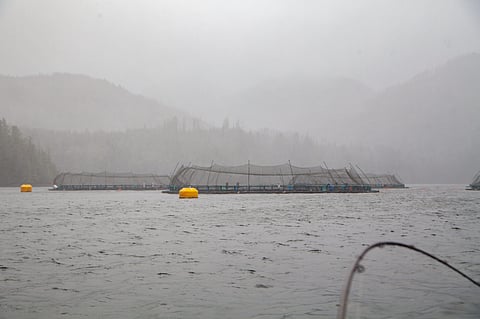

Controversy in British Columbia have become the norm in this area. Once again, several national agriculture and food associations are calling on the government to support salmon farming in Canada. Meanwhile, the federal Minister of Fisheries, Joyce Murray, is preparing to present options for the transition to open net pen fish farming in British Columbia.
Thus, several groups have presented a joint letter addressed to Canada's political leadership. Prime Minister Justin Trudeau and several opposition leaders are some of them.
In the statement, it is expressed the importance of salmon farming in Canada, as it supports around 14,000 Canadians and their families. In addition it also provides access to high-quality and sustainable protein meals to the population, not only in Canada but also worldwide.
The group explained in its communique the wide range of areas touched by the farming industry. "Salmon farming touches all aspects of Canadian farming and food production. [It includes] food retail and service, food banks, food processors, feed manufacturers, and grain growers. Over 3,000 distinct companies supply the salmon farming sector, and its economic activity supports the critical infrastructure of many coastal, Indigenous, rural and urban communities."
Therefore, according to the joint letter, these companies buy about $150 million annually from Canadian grain and protein suppliers, a fact that, as they explain, "supports a circular economy with the potential for significant growth in added value."
The letter's recipients are recalled to remember that Murray's key problem is the environmental impact, but it has been proven that it has "minimal or insignificant effects", so they consider it to be more a political decision than an environmental one. Lastly, they explain that as a result of Murray's measures, about 40% of the salmon farming production in BC has already been stopped and that if the same conditions continue, the trend will increase.
This was the closing sentence of their letter: "We appeal to you to support BC salmon farmers as an integral and growing part of Canadian food production."
